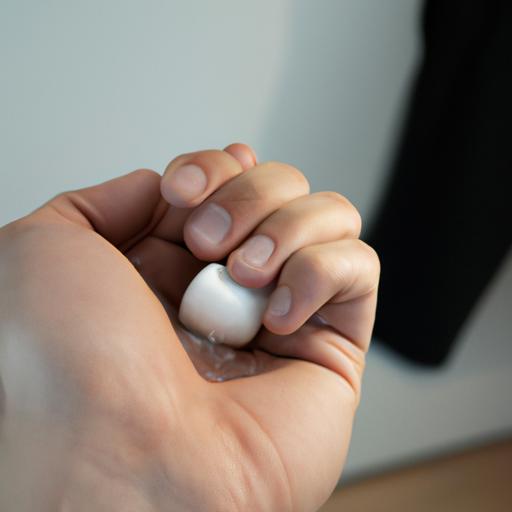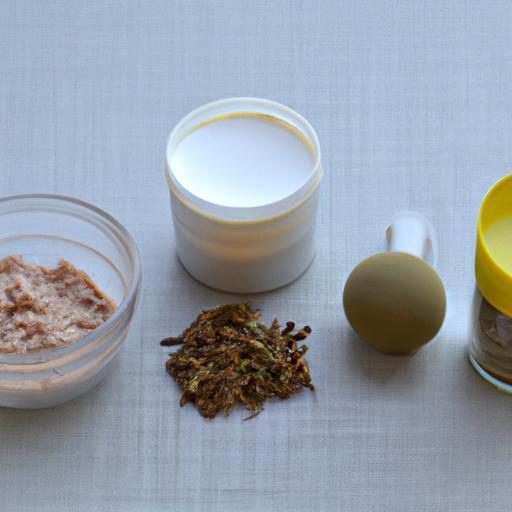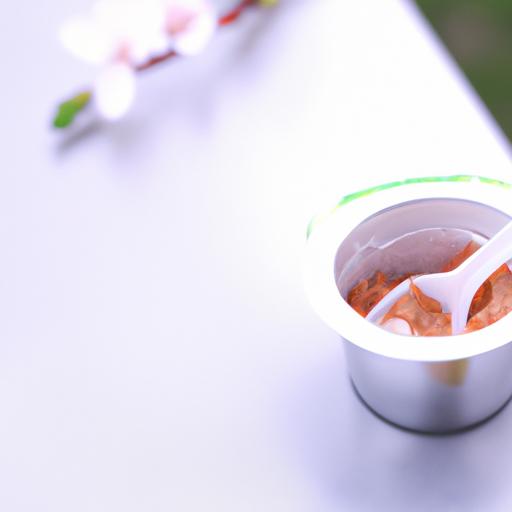As we become more aware of the potential health risks associated with conventional deodorants, many are turning to natural alternatives. However, some natural deodorants still contain baking soda, which can irritate sensitive skin and cause discomfort.
If you’re one of those people looking for a natural deodorant recipe without baking soda, you’ve come to the right place. In this article, I’ll provide you with a comprehensive guide on how to make your own natural deodorant without baking soda. We’ll explore the benefits of using natural ingredients, compare different alternatives, and provide you with a step-by-step recipe.
So, whether you’re concerned about the potential health risks of conventional deodorants or simply looking for a more natural alternative, keep reading to learn how to make your own natural deodorant without baking soda.
Understanding Baking Soda as an Ingredient

Pros and Cons of Using Baking Soda in Deodorants
Baking soda, also known as sodium bicarbonate, is a common ingredient in natural deodorants. It is known for its ability to neutralize odors and absorb moisture. However, while baking soda can be effective in preventing odor, it also has some potential drawbacks.
One of the main advantages of using baking soda in deodorants is that it is a natural and affordable ingredient. It is also readily available, making it easy to find in stores or online.
On the other hand, baking soda can be irritating to some people, especially those with sensitive skin. It can cause redness, rashes, and even burning sensations. In some cases, prolonged use of baking soda can lead to more serious skin issues.
Possible Side Effects of Baking Soda on Sensitive Skin
For those with sensitive skin, baking soda can cause a range of issues. The alkaline nature of baking soda can disrupt the natural pH balance of the skin, leading to irritation and inflammation. This can result in redness, itching, and discomfort.
Additionally, baking soda can be abrasive, leading to micro-tears in the skin that can further irritate and damage the skin barrier.
Explanation of the Role of Baking Soda in Deodorants
Baking soda works in deodorants by neutralizing odor-causing bacteria and absorbing moisture. When applied to the skin, baking soda reacts with sweat and creates an alkaline environment that prevents bacteria from growing. This helps to control odor and keeps you feeling fresh throughout the day.
However, because of its potential side effects, many people are looking for natural deodorant alternatives that do not contain baking soda. In the next section, we’ll explore some of those alternatives and their benefits.
Natural Alternatives to Baking Soda

Overview of Natural Ingredients
If you’re looking for a natural alternative to baking soda in your deodorant, there are plenty of options available. Here are some of the most commonly used natural deodorant ingredients:
- Arrowroot Powder: This natural starch is derived from the roots of the arrowroot plant and helps to absorb moisture and control odor.
- Cornstarch: Similar to arrowroot powder, cornstarch is a natural starch that absorbs moisture and can help keep you feeling fresh.
- Coconut Oil: This versatile oil is a popular ingredient in many natural deodorants due to its antibacterial properties and ability to moisturize the skin.
- Shea Butter: Another popular ingredient in natural deodorants, shea butter is a natural moisturizer that can help soothe and protect the skin.
- Essential Oils: Essential oils like lavender, tea tree, and peppermint can be used in natural deodorants for their antibacterial and odor-fighting properties.
Benefits of Using Natural Ingredients
There are several benefits to using natural ingredients in your deodorant. For one, natural ingredients are often gentler on the skin than synthetic ingredients, making them a good choice for those with sensitive skin. Additionally, many natural ingredients have antibacterial properties, which can help to control odor and keep you feeling fresh throughout the day.
Comparison of Different Natural Alternatives
When it comes to choosing a natural alternative to baking soda, there are several factors to consider. Some ingredients may work better for certain skin types or in certain climates, while others may be more effective at controlling odor. It’s important to experiment with different ingredients to find the one that works best for you. Some popular options include arrowroot powder, cornstarch, and coconut oil, but there are many other natural ingredients to choose from as well.
Recipe: Natural Deodorant Without Baking Soda
Step-by-step Guide
Making your own natural deodorant without baking soda is a simple process that can be done in the comfort of your own home. Here’s a step-by-step guide on how to make it:
- In a small saucepan, melt 1/4 cup of shea butter, 1/4 cup of coconut oil, and 1 tablespoon of beeswax over low heat.
- Once melted, remove from heat and add 1/4 cup of arrowroot powder and 1/4 cup of cornstarch. Mix well.
- Add 25-30 drops of your preferred essential oils (such as lavender, tea tree, or peppermint) and mix again.
- Pour the mixture into a clean glass jar and let it cool at room temperature.
- Once the mixture has cooled and solidified, apply a small amount to your underarms with your fingers or a small spoon.
List of Ingredients and Their Benefits
- Shea butter: moisturizes and soothes the skin, and has a natural SPF.
- Coconut oil: has antibacterial and antifungal properties, and moisturizes the skin.
- Beeswax: holds the deodorant together and has antibacterial and anti-inflammatory properties.
- Arrowroot powder: absorbs moisture and helps to keep you dry.
- Cornstarch: absorbs moisture and helps to keep you dry.
- Essential oils: provide a pleasant scent and have antibacterial properties.
Tips for Storing and Using the Deodorant
- Store the deodorant in a cool, dry place to prevent it from melting.
- Use a small amount of deodorant and apply it with your fingers or a small spoon.
- Wait a few minutes after applying before getting dressed to allow the deodorant to dry.
- If you have sensitive skin, do a patch test before using the deodorant.
Frequently Asked Questions
Common questions about natural deodorants without baking soda
If you’re new to natural deodorants, you may have some questions about the effectiveness of alternatives to baking soda. Here are some common questions people have about natural deodorants without baking soda:
Q: Will natural deodorant without baking soda still keep me dry?
A: While natural deodorants without baking soda may not be as effective at stopping sweat as conventional antiperspirants, they can still help control odor. Look for ingredients like arrowroot powder and cornstarch, which can help absorb moisture.
Q: Will natural deodorants without baking soda irritate my skin?
A: Natural deodorants without baking soda are generally considered to be gentler on the skin. However, everyone’s skin is different, so it’s important to patch test any new product before using it regularly. If you have particularly sensitive skin, look for deodorants that contain ingredients like coconut oil or shea butter, which can help soothe irritation.
Q: Do natural deodorants without baking soda actually work?
A: Yes! While it may take some time to find the right natural deodorant that works for you, there are many effective alternatives to baking soda. Look for deodorants that contain essential oils, which can help control odor, and natural astringents like witch hazel, which can help reduce sweating.
Answers based on expert knowledge and research
The effectiveness of natural deodorants without baking soda has been the subject of much research and debate. However, many experts agree that natural alternatives can be just as effective as conventional antiperspirants.
In fact, some studies have shown that natural deodorants may be better for your health, as they do not contain potentially harmful chemicals like aluminum, parabens, and phthalates.
Additional tips and advice for using natural deodorants
When making the switch to natural deodorants, it’s important to be patient and give your body time to adjust. You may experience some sweating and odor during the transition period, but this should subside after a few weeks.
In addition, it’s important to stay hydrated, as drinking plenty of water can help reduce sweating. And don’t forget to wash your underarms regularly with soap and water to help control odor.
Conclusion
In conclusion, making your own natural deodorant without baking soda is an easy and affordable way to take control of your health and well-being. By using natural ingredients, you can avoid the potential health risks associated with conventional deodorants and reduce your exposure to harmful chemicals.
In this article, we’ve explored the benefits of using natural alternatives, compared different options, and provided you with a step-by-step recipe. Remember, the key to making effective natural deodorant is to find the ingredients that work best for you.
So, whether you’re looking for a more natural solution or simply wanting to experiment with DIY skincare, give this recipe a try. It’s a great way to take control of your health and reduce your exposure to harmful chemicals.
Thank you for reading, and I hope this comprehensive guide on how to make natural deodorant without baking soda has been helpful.



